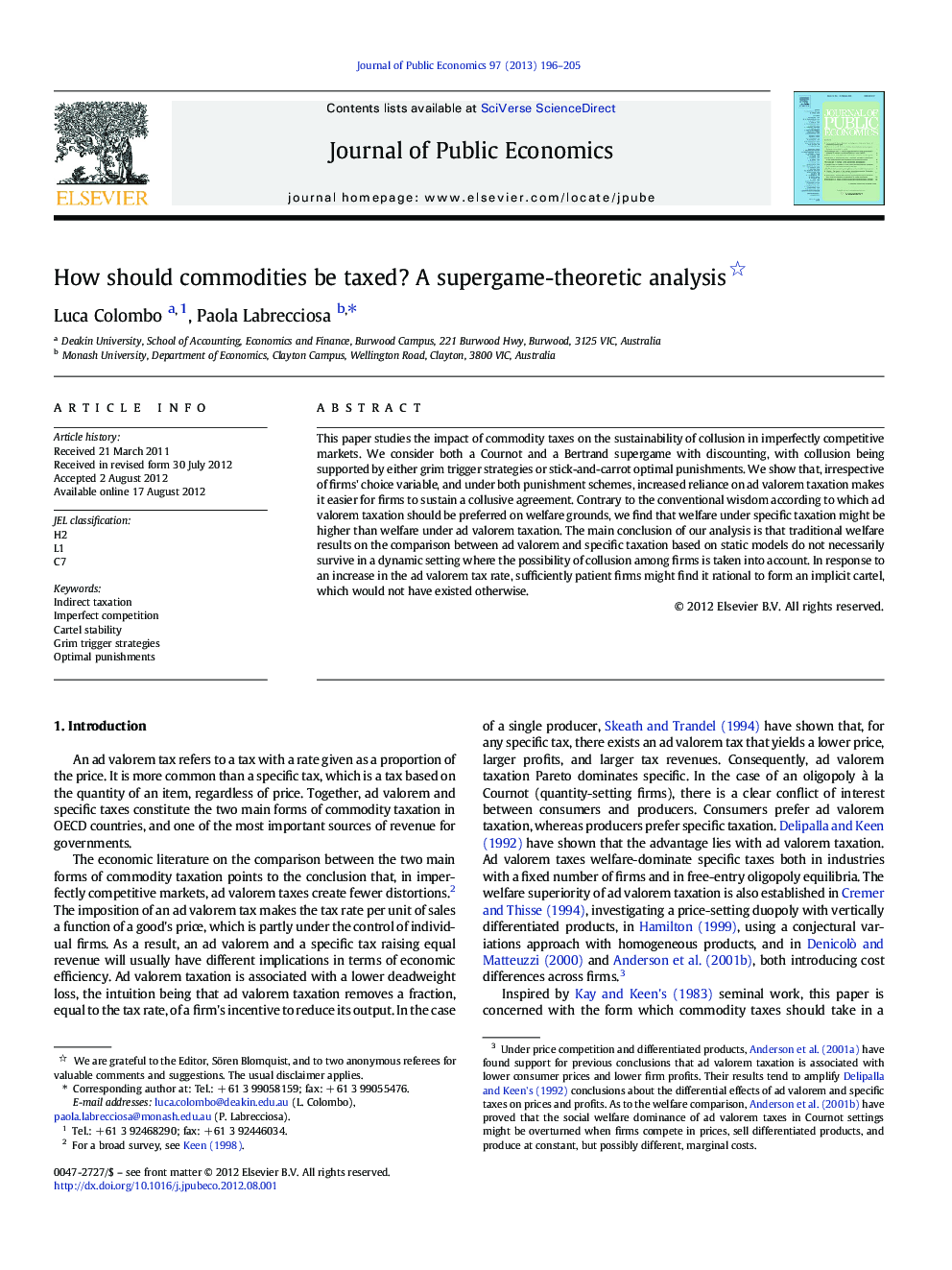| کد مقاله | کد نشریه | سال انتشار | مقاله انگلیسی | نسخه تمام متن |
|---|---|---|---|---|
| 969988 | 1479460 | 2013 | 10 صفحه PDF | دانلود رایگان |

This paper studies the impact of commodity taxes on the sustainability of collusion in imperfectly competitive markets. We consider both a Cournot and a Bertrand supergame with discounting, with collusion being supported by either grim trigger strategies or stick-and-carrot optimal punishments. We show that, irrespective of firms' choice variable, and under both punishment schemes, increased reliance on ad valorem taxation makes it easier for firms to sustain a collusive agreement. Contrary to the conventional wisdom according to which ad valorem taxation should be preferred on welfare grounds, we find that welfare under specific taxation might be higher than welfare under ad valorem taxation. The main conclusion of our analysis is that traditional welfare results on the comparison between ad valorem and specific taxation based on static models do not necessarily survive in a dynamic setting where the possibility of collusion among firms is taken into account. In response to an increase in the ad valorem tax rate, sufficiently patient firms might find it rational to form an implicit cartel, which would not have existed otherwise.
► We compare ad valorem and specific taxation in imperfectly competitive markets.
► We consider both a Cournot and a Bertrand supergame with discounting.
► An increase in the ad valorem tax rate can trigger collusion.
► Conditions for a sustainable cartel are weaker under ad valorem taxation.
► Specific taxation welfare-dominates ad valorem taxation for sufficiently low revenue requirements.
Journal: Journal of Public Economics - Volume 97, January 2013, Pages 196–205